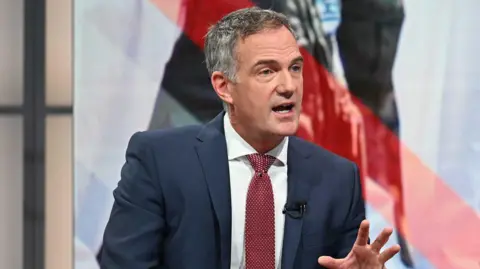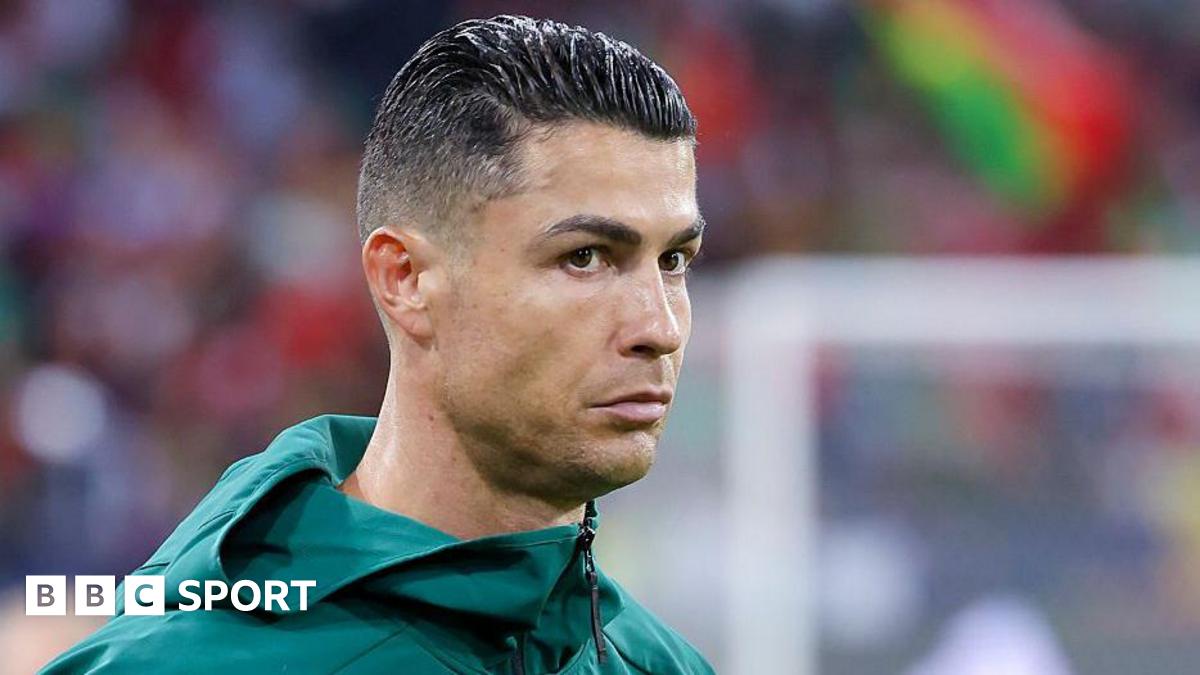Kate Whannel
Political reporter

 BBC
BBC
The science and technology secretary has urged police to "do their bit" to "embrace change" as the Home Office and the Treasury continue negotiations over this week's Spending Review.
Speaking to the BBC's Sunday with Laura Kuenssberg, Peter Kyle said "every part of society was struggling" and the chancellor was facing pressure from all sectors including doctors and universities to increase funding.
He said the review would boost spending for schools and scientific research but declined to rule out a squeeze on policing.
Conservative Chris Philp, the shadow home secretary, said he was concerned about police numbers being cut and urged the government to protect their budget.
Chancellor Rachel Reeves will set out on Wednesday how much money each government department will get to spend for the next three to four years.
Earlier this week Reeves warned not every government department would "get everything they want" and said there were "good things I've had to say no to".
The BBC has been told that Home Office ministers do not believe there is enough money to recruit the additional police officers Labour promised in its manifesto.
Asked about police funding, Kyle said the government had already provided an additional £1bn to the police.
"We are delivering investment in the police," he said. "We expect the police to start embracing the change they need to do to do their bit for change as well."
"Money is part of how we change our country for the better. And reform – modernisation, using technology, doing things in the way that people would expect our public services to be doing in the 2020s – is the other part."
Last month, five police chiefs, including Sir Mark Rowley, head of the Metropolitan Police, said years of cuts had left forces working with "outdated" technology and warned further cuts would "bake in structural inefficiencies".
Also appearing on Sunday with Laura Kuenssberg, Philp said he was "very concerned that police numbers may fall".
Asked how the Conservatives would find money to protect police funding, he said there were "all kinds of areas where Labour is essentially splurging money".
He criticised the government for its spending on environmental projects and public sector pay rises.
He also said his party would "go further on welfare reform" and pointed to its plans to cut £12bn from the welfare budget.
Richard Tice, Reform UK's deputy leader, told the programme his party wanted the government and councils to "stop wasting money" and cut money from the "back offices".
He added the Bank of England could save money by changing its quantitative easing programme.
On Sunday, the government announced an £86bn package for science and technology to help fund drug treatments and longer-lasting batteries.
And, as first reported in The Observer, the Spending Review will also see schools get an additional £4.5bn to help fund special needs education, an expansion of free school meals and pay rises for teachers. The Times has reported that the NHS is expected to get an additional £30bn.
It all comes after the government said it would increase military spending from 2.3% to 2.5% of national income by 2027, with a further ambition to raise it to 3% by 2034.
With some areas receiving significant boosts to spending and Reeves ruling out borrowing to fund day-to-day spending, there is speculation other areas will see spending squeezes in the review.
The Institute for Fiscal Studies has said "relatively modest" growth rates mean "sharp trade-offs are unavoidable".
Kyle said Reeves was delivering the Spending Review at a difficult time saying: "Right across our society, our economy, our public services, we get the stresses that people are under.
"We are the fastest growing economy in the G7 but we know that people aren't feeling it in their pockets yet.
"That's why what you are already hearing about the Spending Review is, that we are going to increase per pupil funding in schools to the highest it's ever been and we're going to have the largest ever increase in R&D [research and development] as a government in our history."







 English (US) ·
English (US) ·